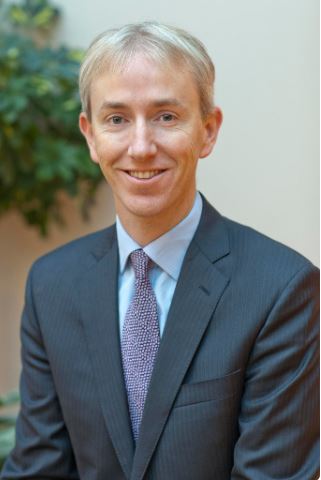
What did you study at Yale? What is your current profession/job?
I graduated from Yale in 2005 with a PhD in Pharmacology. After graduation, I moved to a little biotech company, working in clinical development and regulatory affairs. The company was bought by Pfizer in 2008 and since then I have worked at Pfizer in multiple roles across the company. Over the years, I led the global regulatory strategy for a new lung cancer drug, XALKORI, and then had the great opportunity to lead two multi-disciplinary development teams; one for a lung cancer drug that will be launched this summer and for a breast cancer drug called IBRANCE. After IBRANCE was approved around the globe, I was given the opportunity to move to Sweden and to the Commercial side of the business to run our local sales and marketing organization. In total, I’ve been with Pfizer for 13 years and I’ve been working as an expat in Sweden for two years now.
What do you like most about your current role? What do you find most challenging and/or rewarding?
I love working at Pfizer because of the frontline role we play every day in bringing breakthrough medicines to cancer patients in need on a global scale. The stories I hear back from cancer patients and their families are exceptionally rewarding and motivating. Playing a role in developing a medicine that gives a mother with breast cancer more time to be able to see her kids graduate from high school or get married is so fulfilling and adds real meaning to what I do. On the Development side, the opportunity to work with dedicated scientists and colleagues in translating basic research into clinical advances as well as working with external medical experts from around the globe is very intellectually stimulating, and no two days are alike. In my current Commercial role, the challenges we face on a daily basis are different than those in Development; however, they are no less important – for example, how to sustainably ensure fast and equal access to new innovative medicines for cancer patients in need. The most challenging aspect of my role is simply the pace of change in oncology. Advances in the oncology field are happening so fast that it is tough to keep up with all of the progress and implications on our development or commercialization strategies.
How did your time at Yale shape your career trajectory?
More than any one technical skill that I learned, the PhD training at Yale has shaped my career trajectory by developing my intellectual curiosity, collaborative nature, internal resiliency and a sense of determination to overcome the inevitable speedbumps that one encounters. One’s career path, similar to the scientific journey during a student’s thesis research, is never a straight line and so being open and curious to explore new avenues is critical to finding success and fulfillment. Luckily, through hard work, some good fortune, and being at a company that provides opportunities for personal and professional growth, I’ve been able to contribute and develop in ways I never would have anticipated when I left Yale.
What are the main skills that you acquired as a GSAS student which help make you successful in your current career?
Analytical thinking and the ability to communicate clearly and accurately in writing and verbally are critically important in the professional setting. I really owe my PhD advisor a lot for stressing the importance of these things, more so than any lab technique I learned along the way. Being able to collaborate and work with others effectively is also very important in the workplace as the problems we tackle in biopharma are so complex and take so long to address that they must be accomplished via teamwork and collaboration – both within a company and with external stakeholders.
Did you acquire any professional experience related to your line of work while in graduate school?
Prior to Yale, I worked during the summers as an intern at a pharmaceutical company helping their regulatory and development teams dealing with clinical trial paperwork. My PhD thesis project at Yale was partly funded by a small biotech company so I had some exposure to biopharmaceutical research during my time at Yale. In addition, while at Yale, I read a lot each week regarding the latest developments and macro trends affecting companies in the biopharmaceutical space, so that I was knowledgeable and could speak astutely about the field when I met with external collaborators or potential employers when I graduated.
What advice would you offer GSAS students who are interested in your line of work?
Making the transition from my lab at Yale with 5 people to a biotech with 100 colleagues and then to Pfizer with 100,000 colleagues requires some adaptation. In any transition it is important to be humble, open-minded, and intellectually curious about new areas as well as new people you meet. In academic research, there is more focus on the individual and what they accomplish on their own. In a biopharmaceutical company of any size, the focus is more on the team and how to most effectively and efficiently move a project along. Being able to work cross-functionally and collaboratively with people across the globe is key. One benefit of working for a global company the size of Pfizer is that you get to interact with dozen of subject matter experts from across the globe, and through that you get exposed to lots of different cultures and can harness their diversity of experience, perspectives, and knowledge to find the best solution for a given task. While at Yale, I would just encourage graduate students to spend time building relationships outside of your silo and nurturing your intellectual curiosity beyond your research area of focus, collaborate, and always assume positive intent with those you meet. These traits will serve you well wherever your journey may lead.
